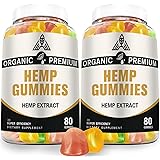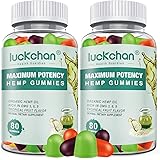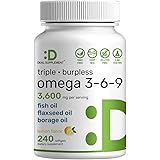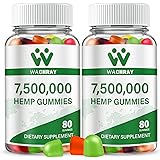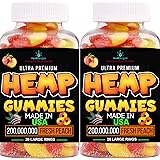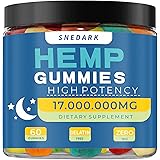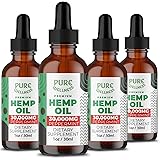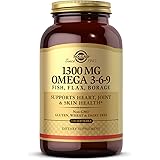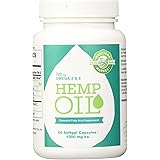Are you searching for natural ways to bolster your well-being and find balance in a world that often feels anything but? The illuminating discussion above with Dr. Hyla Cass, M.D., an acclaimed expert in integrative medicine, offers invaluable insights into the profound **CBD oil benefits** for both mind and body. This exploration delves deeper into the concepts introduced by Dr. Cass, highlighting how an integrative approach, combined with the power of compounds like CBD, can truly transform health outcomes.
Embracing an Integrative Path to Holistic Health
Firstly, the journey into health is often understood as a quest for equilibrium, a dance between what we consume, how we live, and our inherent biological systems. Dr. Cass, drawing from a rich professional history that pivoted from conventional medicine to an integrative approach, underscores a fundamental truth: treating the whole person – mind, body, spirit, and environment – is paramount. This philosophy moves beyond merely alleviating symptoms; instead, it seeks to understand and rectify the root causes of imbalance.
1. **Food as Information:** Dr. Cass emphasizes that “real food” is not just a source of calories; it acts as information for our bodies. Consider it like a complex instruction manual. When our bodies receive highly processed, “franken food,” it’s akin to providing corrupted data. Conversely, consuming foods as close to nature as possible—fresh fruits, vegetables, whole grains—supplies clear, beneficial messages that our bodies are evolved to recognize and utilize for healing and optimal function. This dietary wisdom forms a cornerstone of preventing and managing numerous health challenges, including those affecting mental well-being.
2. **The Power of Lifestyle:** Beyond diet, our daily habits are instrumental in shaping our health. As Dr. Cass notes, the human body possesses remarkable adaptability and forgiveness. Even after years of less-than-ideal choices, a return to a lifestyle aligned with our evolutionary blueprint—incorporating movement, adequate sleep, and effective stress management—can initiate a profound healing process. These seemingly simple adjustments act as a reset button, allowing our bodies to recalibrate and restore balance, often leading to the natural resolution of various symptoms.
Decoding the Gut-Brain Connection and Its Impact on Wellness
Next, it becomes essential to appreciate the intricate relationship between our digestive system and our brain. Dr. Cass highlights that the “gut-brain connection is paramount,” representing a continuous, two-way communication pathway. Think of it as a superhighway of information, with the gut microbiome – the trillions of microorganisms residing in our intestines – playing a crucial role in transmitting signals that directly influence brain function and mood.
When the gut microbiome becomes “dysbiotic,” or imbalanced, this discord is often mirrored in the brain. Such imbalances can manifest as symptoms like anxiety, depression, and even more severe conditions. From an integrative perspective, these are not standalone diseases but rather signals from the body, indicating that “something’s out of whack.” The clinician’s role, then, transforms into that of a detective, meticulously investigating potential causes. This may involve identifying underlying infections, nutritional deficiencies (such as precursors needed for neurotransmitter production), or toxic exposures like heavy metals and environmental chemicals. By restoring harmony to the gut, significant improvements in mental and physical health can often be observed.
Understanding Your Inner Harmony: The Endocannabinoid System (ECS)
Beyond that, at the heart of our body’s self-regulatory capabilities lies the endocannabinoid system (ECS), a sophisticated network that was “hidden in plain sight” until its discovery in the 1980s and 90s. Imagine the ECS as the body’s master conductor, orchestrating communication across various physiological systems to maintain harmony, known as homeostasis. It is widely distributed throughout the brain, immune system, organs, connective tissues, glands, and even the skin.
The ECS comprises three main components: endocannabinoids (naturally produced by the body, such as anandamide and 2-AG), receptors (CB1 and CB2, found on cell surfaces), and enzymes (that break down endocannabinoids once their job is done). This system is vital for functions ranging from mood, sleep, appetite, and memory to pain sensation and immune response. A well-functioning ECS acts as a protective shield, helping the body destress, relax, and adapt to environmental challenges. When this system is deficient, often due to stress, diet, or genetic predispositions, our internal balance can falter, leading to various symptoms.
Exploring the Comprehensive CBD Oil Benefits
Then, where does CBD fit into this intricate picture? Cannabidiol (CBD), a natural compound found in the cannabis plant, interacts with the ECS not by directly binding to receptors like THC, but by influencing the enzymes that break down our own endocannabinoids. This action effectively “shores up” the ECS, as Dr. Cass describes, by allowing our natural endocannabinoids to remain active for longer, thus enhancing their beneficial effects. This mechanism helps to explain the wide array of **CBD oil benefits** being explored today.
Addressing Common Symptoms and Supporting Mental Wellness
CBD has gained significant attention for its potential to alleviate symptoms related to anxiety, depression, and chronic pain. Many individuals report a profound sense of calm and relief, suggesting that CBD helps to restore a sense of internal balance. The compound is thought to modulate serotonin receptors, which are crucial for mood regulation, and reduce inflammation, a key contributor to various pain conditions. For individuals seeking alternatives to traditional pharmaceuticals with fewer side effects, especially those looking to taper off medications, CBD oil represents a promising natural support.
Dr. Cass recounts positive experiences helping patients withdraw from psychiatric medications and substances of abuse, underscoring CBD’s role as an aid. Moreover, European studies have even compared CBD’s efficacy to common antipsychotics in treating conditions like schizophrenia, with CBD demonstrating comparable benefits without the significant side effects often associated with conventional medications. This highlights CBD’s potential as a gentler yet effective alternative for profound emotional well-being challenges.
CBD, THC, and the “Entourage Effect”: Navigating Your Options
In addition, the discussion around CBD often involves its relationship with THC, the psychoactive compound in cannabis. Dr. Cass clarifies that the cannabis plant, in its natural state, contains a balanced profile of cannabinoids. However, recreational breeding for high THC content has often disturbed this natural equilibrium, sometimes leading to adverse reactions like anxiety or paranoia. This imbalance can be rectified, she suggests, by administering CBD, which can neutralize the overstimulating effects of high THC.
When selecting CBD products, a distinction is often made between full-spectrum and broad-spectrum varieties:
- Full-Spectrum CBD: By legal definition, full-spectrum products contain less than 0.3% THC. As Dr. Cass explains, this trace amount of THC is not only non-psychoactive at these levels but is often beneficial, contributing to what is known as the “entourage effect.” This theory posits that all the cannabinoids, terpenes, and other compounds in the plant work synergistically to enhance the overall therapeutic effects, providing a more comprehensive benefit than isolated CBD. Dr. Cass often prefers full-spectrum options, viewing them as being “closer to nature.”
- Broad-Spectrum CBD: This type of CBD has undergone additional processing to remove the THC completely, while still retaining other beneficial cannabinoids and terpenes. While a good option for those who wish to avoid THC entirely (e.g., due to drug testing concerns), the process of removing THC can sometimes result in “collateral damage,” diminishing the levels of other valuable compounds that contribute to the entourage effect.
The choice between these options often comes down to individual preference and specific needs, though the “closer to nature” argument for full-spectrum products is compelling.
Dosage and Application of CBD Oil: Finding Your Sweet Spot
Finally, one of the most common questions regarding **CBD oil benefits** revolves around proper dosage. Dr. Cass advises a pragmatic approach: “start low and slow.” This individualized method acknowledges that everyone’s endocannabinoid system and response to CBD can vary significantly due to factors like genetic predisposition, stress levels, existing deficiencies, and individual body chemistry. There is no one-size-fits-all dosage.
Here’s a practical breakdown of how to approach dosing:
- Identify a Target Symptom: Begin with a clear goal in mind. Are you addressing anxiety, seeking better sleep, or managing pain? Having a target symptom helps you evaluate the CBD’s effectiveness.
- Initial Low Dose: Using a product like Dr. Cass’s 750mg CBD oil (where one dropper full equals 25 milligrams of CBD), start with just a few drops under the tongue. Hold it there for absorption, then swallow.
- Observe and Adjust: Wait a period to observe any effects. It’s common not to notice immediate changes, especially at a very low dose. Do not be discouraged; this simply means your personal “sweet spot” has not yet been reached.
- Gradual Increase: Slowly increase the dosage over time. This might mean taking one dropper full once or twice a day, or gradually increasing to two dropper fulls, or even exploring higher concentrations like a 1500mg product (where one dropper full is 50 milligrams of CBD). Some individuals may require as much as 100 milligrams of CBD or more per dose to experience the desired effects.
The beautiful aspect of this process is witnessing the transformation—the “shoulders come down,” a smile appears, as individuals discover their optimal dose and experience the profound balancing effects of CBD.
Beyond Humans: CBD for Pet Wellness
Moreover, the therapeutic reach of CBD extends beyond human well-being, offering significant **CBD oil benefits** for our animal companions. Dr. Cass shares heartwarming anecdotes and practical advice on using CBD to enhance pet quality of life, particularly for dogs and cats.
- Anxiety Relief: Just like humans, many pets suffer from anxiety, particularly around loud noises like fireworks or thunderstorms. CBD has been found to be remarkably effective in calming nervous animals, helping to mitigate the intense fear and stress responses. Administering CBD in a palatable form, such as a peanut butter treat, can make the experience positive for pets.
- Pain Management: The anecdote of a chiropractor’s dog finding significant pain relief from cancer through CBD is a powerful testament to its analgesic properties in animals. CBD can offer a gentler approach to managing chronic pain, allowing pets to experience a more peaceful and comfortable existence, especially during challenging health battles.
- General Well-being: For pets that are naturally more “amped up” or suffer from general nervousness, CBD can help restore a sense of calm and balance, suggesting that these animals, like humans, may also have a low endocannabinoid system that can be supported by cannabinoids.
This wide applicability underscores the universal nature of the endocannabinoid system across species and the potential of CBD as a holistic supplement for various living beings.
Dr. Hyla Cass’s insights provide a compelling argument for embracing an integrative approach to health, with **CBD oil benefits** playing a significant role in supporting our body’s natural healing capabilities. Her dedication to quality and natural solutions offers a valuable resource for those seeking to empower their own health journey. Discover more and explore her range of products by visiting drcass.com, and remember to use the code OZONE15 for 15% off your first order.


